Coffee was invented by the Arabs
the legend and tales of how the coffee tree revolutionised the Arab world and influenced cultures beyond geographical borders.
To my people, coffee is more than a beverage. As a visitor is greeted with “ahla wa sahlan” {“hello and welcome!”} and showered in kisses, a copper dallah brews with a faint whistle on the stovetop. To my people, coffee is a delicacy that reflects our values of community, generosity, and nourishment for the mind, body, and soul.
From the gentle roast of Arabica coffee beans, later ground to a blend reminiscent of sand dunes and prepared in the heart of our homes (the kitchen), Qahwa (or Arabic coffee) is a historical tradition practised for many centuries. The rich fragrances of cardamom, saffron, and cloves are the palatable embodiment of the motherland across different regions of the Middle East.
While coffee is a focal aspect of culinary and social culture around the world, the widely adored beverage was first invented by (you guessed it) the Arabs. So, treat yourself to a cup of coffee prepared to your liking (no judgement if it’s decaf or a mocha) for this read on the Arabic origins of coffee and its culture.
The story of coffee begins in the lush forests of North Africa. While there is historical contention amongst the Arabic legends, it is widely accepted the coffee bean originated from ancient Ethiopian soils and later became the brewed beverage we know today in 15th-century Yemen.
As legends have it, it all started with an Ethiopian coffee tree, a goat and Kaldi, the goat herder. Upon observing the growth of a foreign red ‘berry’, Kaldi noticed his goats’ heightened energy. He was awestruck at the sight of his prancing goats and decided to chew the berry as they did. To his curiosity, Kaldi found himself more energised and hurried to share his experience at a local Sufi monastery in search of wisdom. The monks dismissed the erratic red plant and it’s stimulating effects, and threw them into a nearby fire. Little did they know, the strange berry would not burn and dissolve. It would roast…
The mysterious roasted fruit later garnered curiosity across the African continent and Arabian peninsula. According to the first credible source, coffee was first consumed as a beverage in a Sufi monastery in Yemen. Via trade routes, it was brought into Yemen and cultivated. Lush gardens of green embellished with darling crimson bulbs decorated the monasteries.
It was in these monasteries that Sufi monks began to prepare the roasted coffee beans into a deliciously bitter beverage to assist them in sustaining their worship through the stillness of the night. The stimulating drink prolonged hours of focused meditation and sincere prayer. Reported by an early historical source, Abd Al-Qadir al-Jaziri says “They drank it every Monday and Friday eve, putting it in a large vessel made of red clay. Their leader ladled it out with a small dipper and gave it to them to drink, passing it to the right, while they recited their usual formulas”.
Soon, the beans and beverage would garner widespread popularity from Yemen’s infamous port city of Mocha, across other regions of the Arab world. The name of Yemen’s buzzing city port, Mocha, also became famous for it’s local bean flavour, which had a richer chocolate taste. From Makkah and Madinah, to Egypt, Syria and Constantinople (modern-day Istanbul), the beverage became an essential accessory to long nights of worship.
For centuries, humans have found luxury in the beverage: it’s palliative scent of cardamom embracing both the one who prepares it, and the one blessed with consuming it. In the Arabian peninsula, coffee was adopted as a gift to indulge visitors with its aromatic comfort and grace loved ones with warm hospitality. Coffee soon became a regular routine for locals to treat themselves and later developed outside the home to serve the community.
It was in Constantinople the first coffee house was established, marking the pathway for coffee consumption to be communal. In 1475, gatherings of Qahwa became the epicentre of knowledge and community. Alongside a heart-warming sip of coffee, locals met with old and new acaquntinecies to listen to music, exchange wisdoms and engage in meaningful conversation - the ultimate third-place! In Makkah and Madinah, coffee houses were referred to as “Schools of the Wise”, and cherished by international pilgrims to enhance their communal and individual worship.
The beloved beverage garnered groundbreaking popularity across Europe, and soon globalised beyond the boundaries of language, culture and identity. Coffee and coffeehouses became a beacon of intersectionality, of creativity, of expression, of unity.
Want to stay updated on the latest dispatch? Follow our socials!
Upon my own reflection, it is incredibly beautiful to observe the minor differences of coffee across cuisines of different cultures. Perhaps the consistency is slightly thicker, the size and shape of the ceramic cup a little more flourished, the addition (or exclusion) of milk, and the loving labour of preparing the beverage with additional spices. Or even more enchanting, the taste preferences of individuals and the modern enrichment of blends and flavours. Coffee is a symbol of both individuality and customary tradition.
To my people, coffee is more than a beverage. We perserve our ancient tradition of serving coffee to visitors in our finest silverware reserved for these exact moments of gathering. These sacred moments of hospitality are an offering beyond a tasty treat - it is an offering of devotion, attention and adoring respect. It is as if to say “my home is your home.” And as we share the luxury of Qahwa, encaptured by the lingering aroma of cardamon, saffron and cloves, my people continue to endure.
On that note, please feel free to treat me to a coffee (happy to announce I have progressed from decaf, my ancestors will be proud lol).
Dearest reader and I,
It is in the artisanal exploration of the mundane that we can preserve our culture. Be inspired to question the roots of our customs. The common practices of our ancestors were created out of love and tender devotion to others, and so it is our role to entwine their routines with our own in the current ages. With the earnest intention to continue the legacies which runs through our veins, our faithful traditions continue to exist through us.
Yours lovingly, Shayla
Asalamu-alaykum Wa-rahmatullahi Wa-barakatuh.
{May peace and blessings be upon you}.


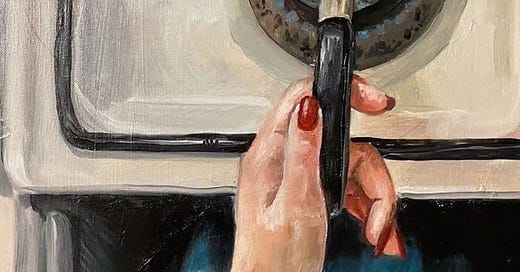



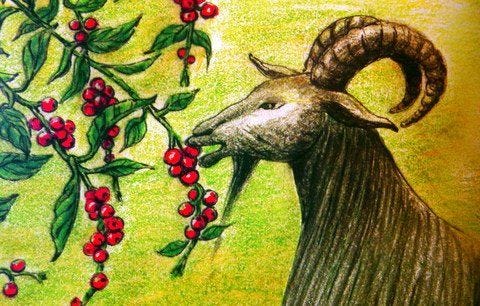
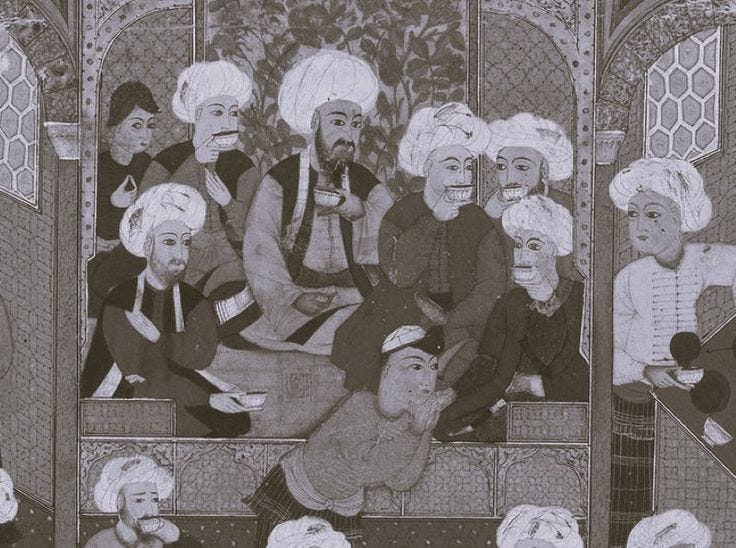
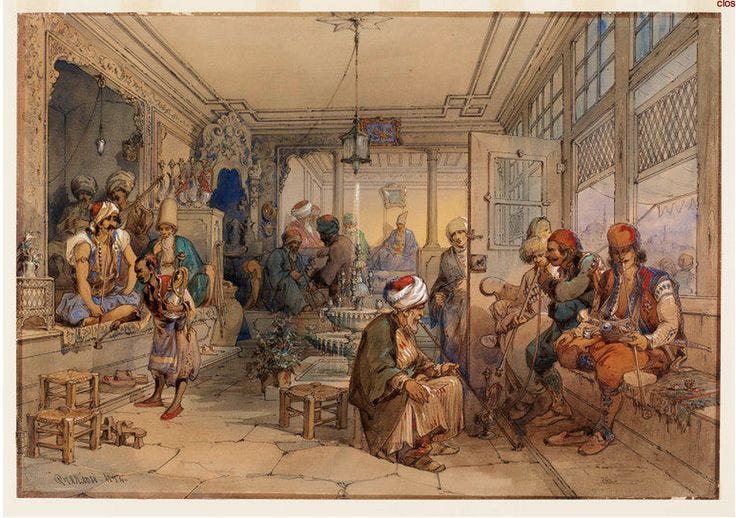
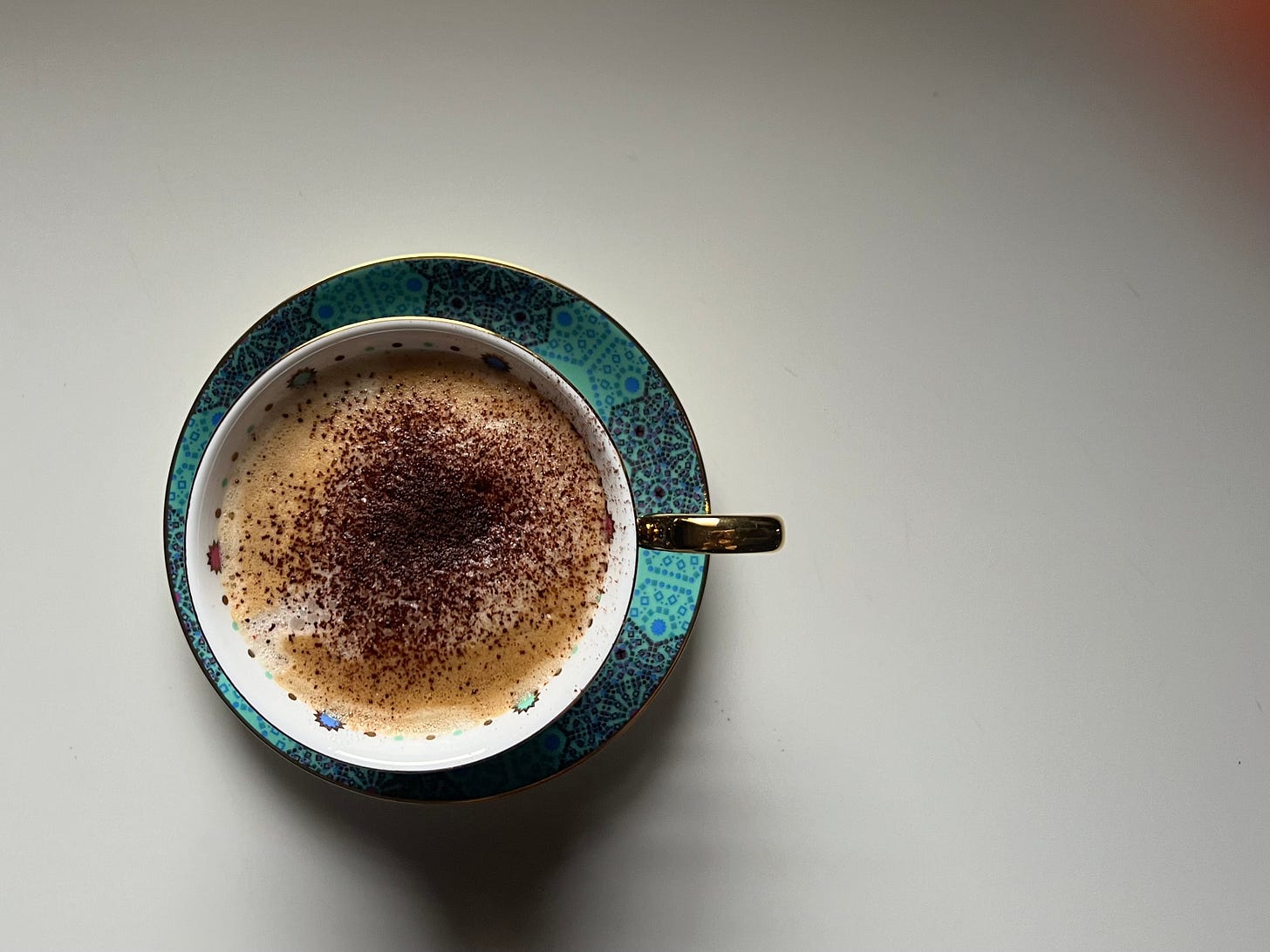
I honestly teared up reading “To my people, coffee is more than a beverage. We perserve our ancient tradition of serving coffee to visitors in our finest silverware reserved for these exact moments of gathering. These sacred moments of hospitality are an offering beyond a tasty treat - it is an offering of devotion, attention and adoring respect.” You reflect the depth of our culture and history in such a real and raw manner. Mashallah, what beautiful words!
Sooo beautiful ❤️☕️